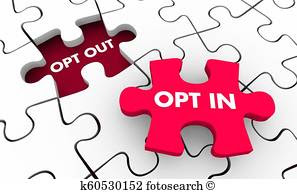Follow me, follow you. Follow what you have agreed to is a tad broken.
source : https://www.nbcnews.com/tech/internet/facial-recognition-s-dirty-little-secret-millions-online-photos-scraped-n981921?cid=par-aff-nbc-knbc_20190312 “Facial recognition's 'dirty little secret': Millions of online photos scraped without consent.” so is the headline on this # NBC story. Classic headline for click bate. IBM released 1 million pictures of faces, intended to help develop fairer face recognition algorithms. This is not a new issue and the bias features in a few very good TED talks so is very real. However the story was that you face was scraped directly from #Flickr. Now the question is all about permission of the subjects rather than this is something we need data for to remove bias. Data researchers scrape data from the internet (it is public) all the time to train algorithms. Photos are often a fantastic source of image data as the hashtags conveniently correspond to the content of the photos, maki...




